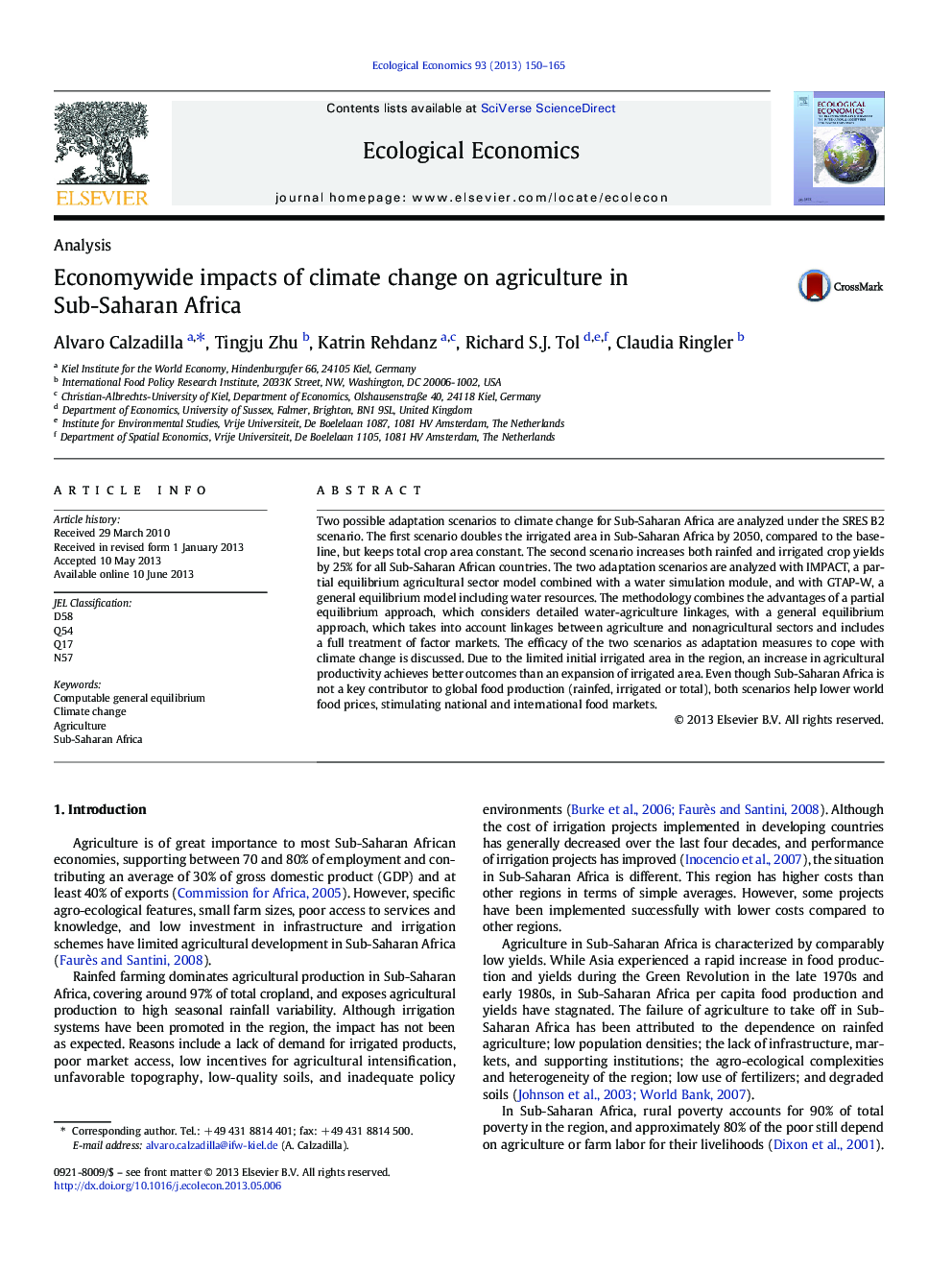| کد مقاله | کد نشریه | سال انتشار | مقاله انگلیسی | نسخه تمام متن |
|---|---|---|---|---|
| 5049947 | 1476386 | 2013 | 16 صفحه PDF | دانلود رایگان |
- Two adaptation scenarios to climate change for Sub-Saharan Africa are analyzed under the SRES B2 scenario.
- Climate related losses in agricultural productivity worldwide may change and reverse comparative advantages between regions.
- An increase in agricultural productivity achieves better outcomes than an expansion of irrigated area.
- A 25% increase in crop yields would almost completely offset the impact of climate change on child malnutrition.
- Policy actions should concentrate in improving agricultural productivity in rainfed agriculture.
Two possible adaptation scenarios to climate change for Sub-Saharan Africa are analyzed under the SRES B2 scenario. The first scenario doubles the irrigated area in Sub-Saharan Africa by 2050, compared to the baseline, but keeps total crop area constant. The second scenario increases both rainfed and irrigated crop yields by 25% for all Sub-Saharan African countries. The two adaptation scenarios are analyzed with IMPACT, a partial equilibrium agricultural sector model combined with a water simulation module, and with GTAP-W, a general equilibrium model including water resources. The methodology combines the advantages of a partial equilibrium approach, which considers detailed water-agriculture linkages, with a general equilibrium approach, which takes into account linkages between agriculture and nonagricultural sectors and includes a full treatment of factor markets. The efficacy of the two scenarios as adaptation measures to cope with climate change is discussed. Due to the limited initial irrigated area in the region, an increase in agricultural productivity achieves better outcomes than an expansion of irrigated area. Even though Sub-Saharan Africa is not a key contributor to global food production (rainfed, irrigated or total), both scenarios help lower world food prices, stimulating national and international food markets.
Journal: Ecological Economics - Volume 93, September 2013, Pages 150-165
